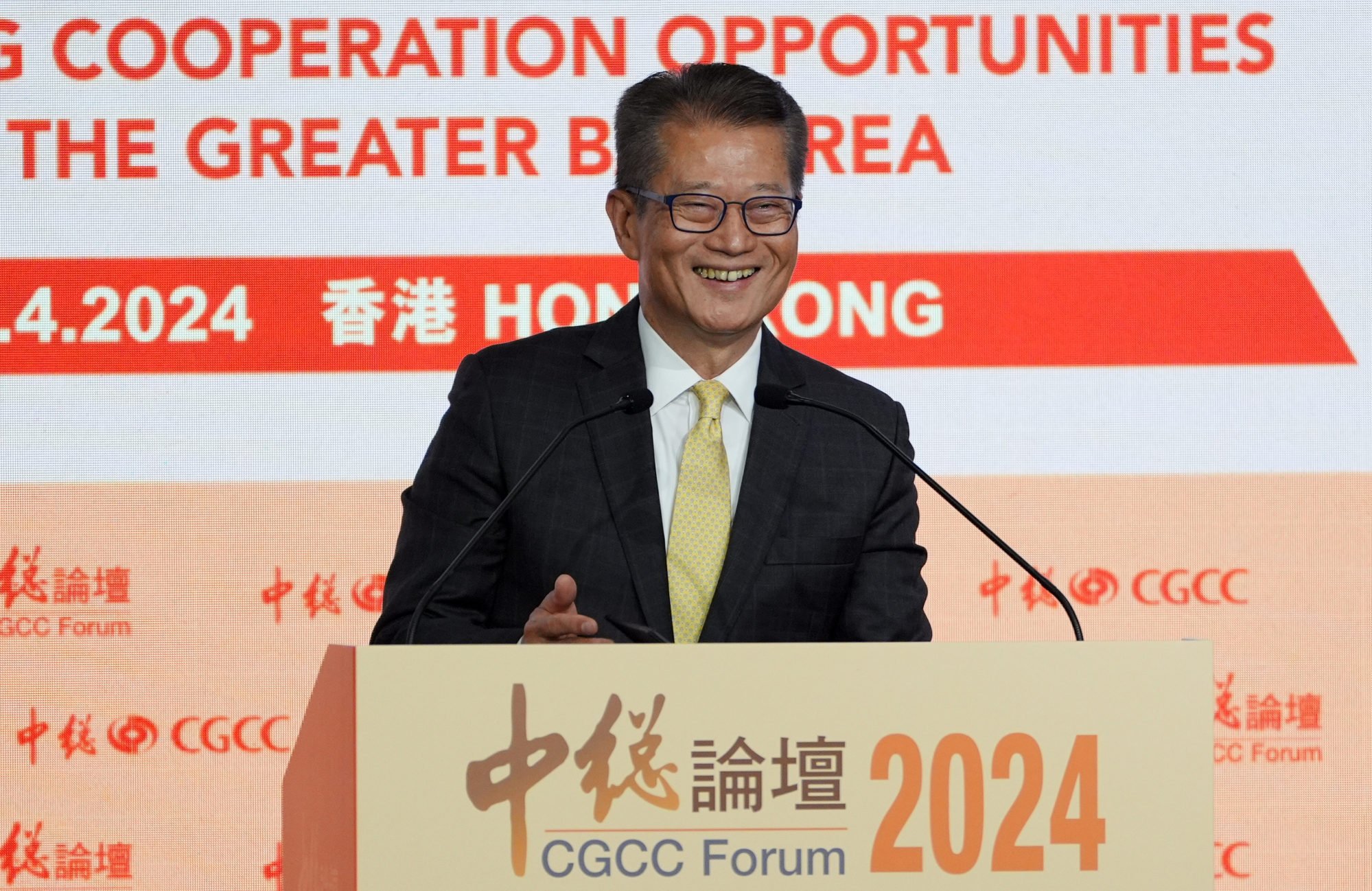
Hong Kong’s economy grew between 2.5% and 3.5% in first quarter, Paul Chan says
- Finance chief says property and stock markets still under pressure amid geopolitical tensions, urges investment in green development and digital economy to drive growth
- ‘Economic growth in first quarter was positive, which stands between 2.5 and 3.5 per cent. The range is the same as what we estimated for 2024 yearly growth,’ he says
But Financial Secretary Paul Chan Mo-po said on Tuesday that the local property and stock markets were still under pressure amid geopolitical tensions and that the city should invest in green development and the digital economy to drive further growth.
“The economic growth in the first quarter was positive, which stands between 2.5 and 3.5 per cent. The range is the same as what we estimated for 2024 yearly growth,” he said.
Chan shared the figures during a forum focused on enhancing Hong Kong’s professional services and exploring opportunities for cooperation in the Greater Bay Area. The event was organised by the Chinese General Chamber of Commerce.
Chan said an exact figure would be released next week.
While the unemployment rate remained at a low of 2.93 per cent and inflation stood at less than 1 per cent, the finance chief said the local capital market faced significant pressure.
He noted that property prices had experienced a yearly decline of about 7 per cent to 9 per cent, while the stock market had fallen by 14 per cent.
“This performance contradicted the trajectory of the real economy, reflecting the impact of geopolitical pressures on capital flows, an extended period of low interest rates, and adjustments to the mainland Chinese economy, all of which affected the investment sentiment,” Chan said.
He pointed to green development and the digital economy as two fields that Hong Kong “must embrace” to spur future growth.

Chan also touched on Beijing’s ambitions for Hong Kong to become a hub for numerous sectors, highlighting the call to become a centre for finance, innovation and technology (I&T), and trade.
“To put them in concrete terms, the country has tasked us to become eight centres in the country’s 14th five-year plan … and I think three of the eight would significantly contribute to Hong Kong’s development,” he said.
The other five ambitions outlined for the city in the plan are turning it into a hub for cultural exchange, shipping, aviation, legal and dispute resolution services, as well as intellectual property.
Chan vowed closer collaboration with bay area cities, especially neighbouring Shenzhen, as part of efforts to develop Hong Kong into an I&T hub.
The bay area refers to Beijing’s plan to turn Hong Kong, Macau and nine mainland cities into an integrated economic powerhouse.
Hong Kong has the expertise, liquidity needed for transition finance: Paul Chan
The finance chief said the creation of an I&T park at the Lok Ma Chau Loop was the most important collaborative platform on innovation between the city and Shenzhen.
The area will house the San Tin Technopole, a project that will turn more than 600 hectares (1,483 acres) near the border into a hub for attracting technology companies and talent.
“If there are policies between Hong Kong and Shenzhen to further facilitate the flow of talent, data, capital and goods within designated areas, Hong Kong’s advantages in innovation and technology will become even more prominent,” Chan said.
Hong Kong Green Finance Association president and chairman Ma Jun, who served as a panellist at the forum, suggested the government introduce more policies to guide and encourage businesses to invest in green technologies.
“Green technology is actually crucial for achieving carbon neutrality. It requires a significant investment of funds,” Ma said, adding the field seldom attracted interest from most of the city’s private equity and venture capital firms.

